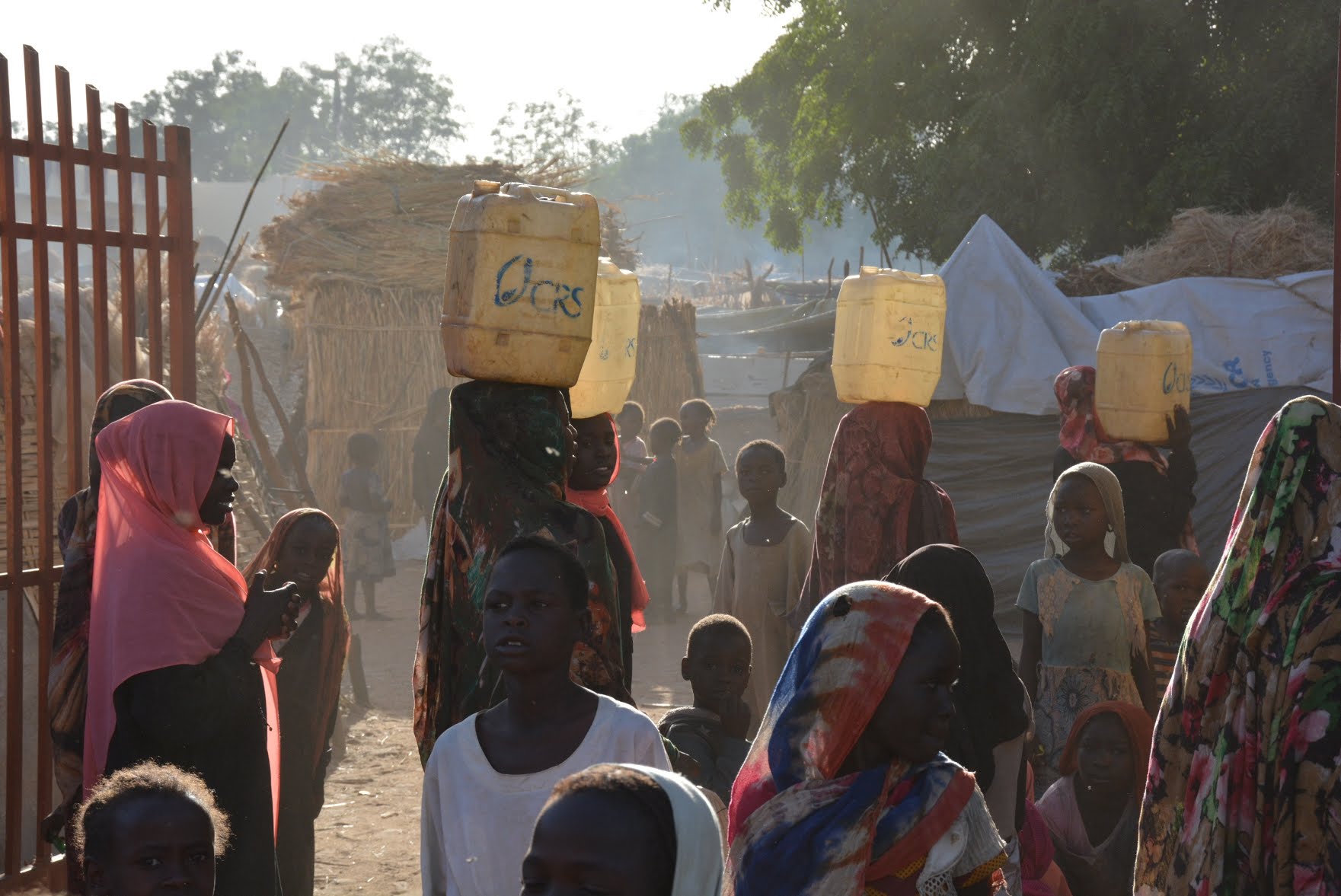The crisis in Darfur, Sudan, is having a destabilising ripple effect in neighbouring countries, particularly Chad, and further across the wider Sahel region.
The conflict has been ongoing since mid-April, involving the Sudanese army and the paramilitary Rapid Support Forces (RSF). International attention is largely focused on the battle for the capital Khartoum, but theses fighting has also spread in the western province of Darfur, a conflict-weary militarised region the size of France.
Experts believe that the unrest in Darfur is liable to significantly threaten the stability of Chad, due to the region’s historical tension between Arab and non-Arab communities. The risks are especially high, as reports suggest that not only weapons, but factions from beyond Sudan’s borders have become involved in the conflict which damages the possibility of a resolution and increases the chances of further destabilisation.
Further fueling the issue is the already widely-spread circulation of small arms in the region; with fighters entering and leaving, there is a great chance that weapons will be spread across the neighbouring countries and through communities, creating a lasting problem of arms proliferation in the Sahel region, across Africa, and beyond.
The situation in Darfur points to a much greater problem of instability in West Africa; a result of conflicts, power disparities, and a lack of regional service provision. The prevalence of arms wide across West Africa, as a result of former civil wars, has been a source of continual destabilisation. Therefore, the conflict in Darfur presents not only a direct problem for neighbouring countries, but by exacerbating the regional arms proliferation issue, creates an indirect threat to West African stability.
However, the focus on a regional solution to the Darfur crisis must not outweigh the importance of individual country projects. The benefits of a divided resolution can be seen in, for instance, the Lake Chad Basin Commission, which is aiding the resolution of security issues in the mentioned region. Finding a regional solution to the Darfur crisis is essential, but the need for single state projects is also extremely important in minimising the destabilising effects of this particular conflict.
The decade that has passed since the establishment of the RSF has been marked by an evolutionary transition from a government-backed militia, to a powerful paramilitary force in Sudan’s Darfur region. Known originally as the Janjaweed, this militia was accused of gross atrocities in Darfur, as war broke out in 2003. In the years afterwards, the RSF was bolstered with thousands of mainly Arab recruits from Chad, many of whom were looking for a better salary.
This influx of foreign fighters into the Darfur region has put at risk further exacerbation of tensions, warned Hoinathy, noting that although poverty and kinship are the major drivers of fighter migration, they can also have unintended, damaging consequences.
Much of Hemedti’s authority as commander of RSF originates from his strong ethnic ties to Chad, along with his control of lucrative goldmines in Darfur. These factors manage to incite support from Chad’s local populations.
Additionally, news of the Russian PMC called the Wagner Group possibly providing tactical and logistical support to the RSF, could put France on edge. The former colonial power in Chadian capital N’Djamena is looking to form a partnership to curb Kremlin influence among armed forces in the region.
“Any Wagner Group backing of the RSF would place a significant strain on France’s efforts to end the proxy war in Chad,” warned Mucahid Durmaz, the senior analyst covering West Africa for Verisk Maplecroft.

In 2011, Libya was plunged into chaos following the fall of Muammar Gaddafi’s regime and the subsequent rise of Islamic militant groups. During this period of upheaval, many of Gaddafi’s loyal fighters scattered across the region in search of refuge, including the ethnic Tuareg fighters of North Africa.
The Tuaregs, a traditionally nomadic people occupying areas of Algeria, Mali, and Niger, have feuded with central government forces in Mali, Niger, and Burkina Faso for freedom and resources. These clashes mostly subsided when Gaddafi was in power due to his support of the Tuaregs.
However, the fall of Gaddafi in 2011 provided the Tuareg fighters an opportunity to re-establish their military presence in the region. Inspired by a growing sense of Tuareg nationalism, many of these fighters returned to Mali in 2012 to reignite their rebellion against the government.
The Tuareg rebellion soon attracted the attention of hardline militant groups who had taken root in the region, working together to seize control of northern cities and threaten Bamako, the nation’s capital. This prompted France to launch a military intervention in 2013, resulting in the removal of the fighters from northern Mali.
Despite the presence of UN and French troops in the region, violence has continued to worsen in the years since. It now extends beyond Mali’s borders into neighboring Burkina Faso and Niger, sparking anti-French sentiment in the region.
France has withdrawn its forces from Mali and Burkina Faso due to public outcry in recent years, however it still remains a close partner of Chad’s government. Historian Abouba SiaHoinathy has expressed concern over the potential return of Chad’s fighters, who have gained battle-tested experience fighting in Sudan, as this could lead to increased ethnic conflict in Chad and its borders.
Chad’s fragile and ever-changing relationship with rebel groups has resulted in unfavourable outcomes and a dire need for the government to be more alert concerning such matters. This situation has been further exacerbated by a 2021 incursion of rebel forces from the Front for Change and Concord in Chad group (FCCT) from Libya, which resulted in the death of the country’s longtime President Idriss Deby during his visit to front-line troops. This influx of avid fighters has heightened concerns of a larger-scale armed conflict that could potentially engulf portions of West Africa.
The situation, according to political scientist Tarik Durmaz of the African Conflict and Security Research Center, could potentially worsen already disastrous conflicts taking place across the region. For example, in Nigeria – which shares an international border with Chad in the north – governments are battling a complex assortment of militia, armed bandits, and other gunmen. “Chad’s situation can easily spread straight to Nigeria,” according to Nnamdi Obasi, Senior Adviser for Nigeria at the International Crisis Group. Furthermore, “the disintegration of security in Sudan will generate flows of refugees and possibly fighters and arms out of Sudan with possible regional implications spreading down to Nigeria.”
Due to this grim reality, the need for inter-state cooperation amongst African nations – including Chad – is critical for preserving security in the region and curbing potentially devastating insurgency. To this end, Durmaz argued that states must increase information sharing, cross-border military operations, and promote the training of security and intelligence forces.














